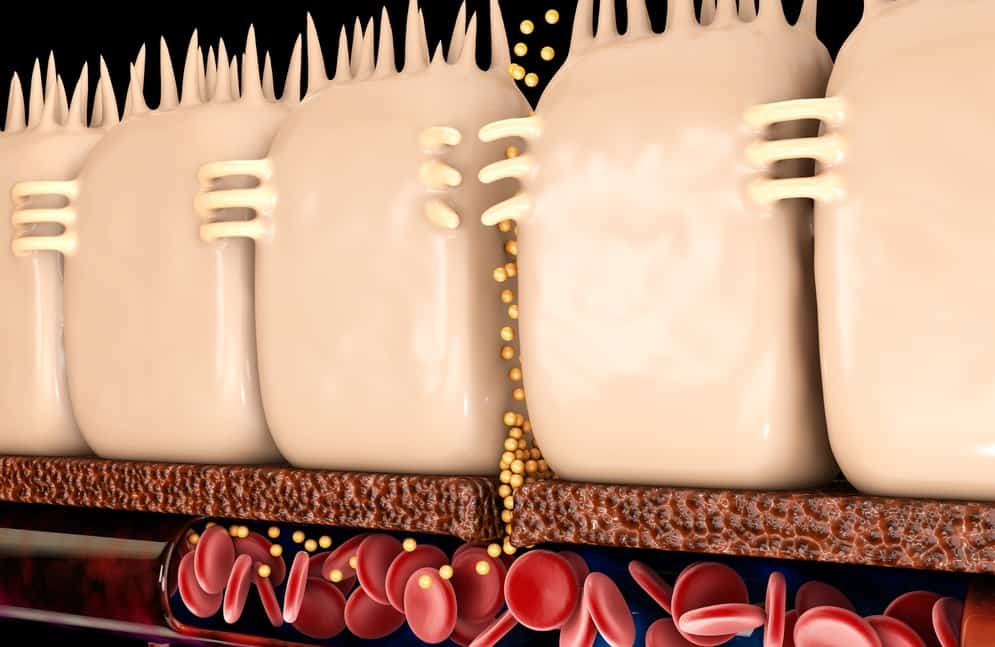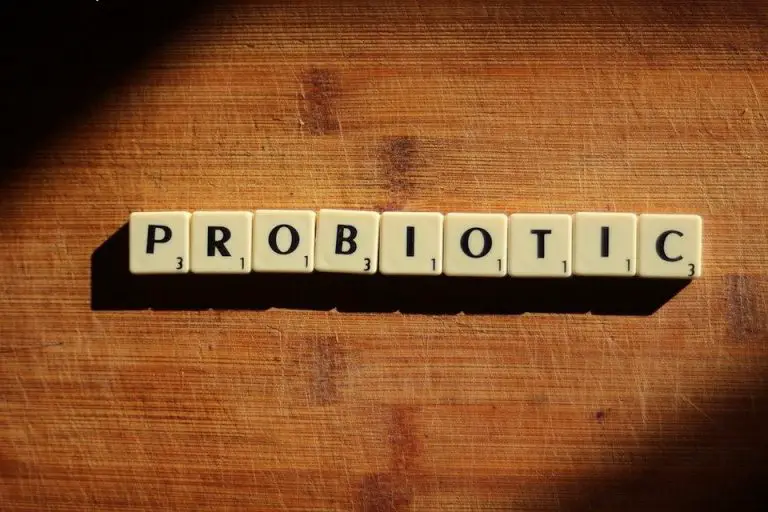What are the Best Probiotics for Leaky Gut?
If you’ve done any reading about leaky gut, then you know it means that toxins can pass through the lining of your digestive tract and get into your bloodstream! This is something no one wants to mess with…so how can probiotics help?
What Are Some Leaky Gut Symptoms?
Several signs exist that might point to the possibility of a leaky gut. The following are some of the more common leaky gut symptoms one may experience.
- Chronic diarrhea
- Gas or bloating
- Nutritional deficiencies
- Poor immune system
- Headaches
- Brain fog
- Excessive fatigue
- Carb and sugar cravings
- Joint pain and arthritis
When the lining of your intestinal tract begins to develop holes, tissue damage can occur, leading to inflammation. One of the leading causes of a leaky gut is bacterial imbalance. A poor diet that includes sugar, genetically modified foods, and dairy products can contribute to this syndrome.
How Do Probiotics Help Leaky Gut?
Leaky gut is the non-medical term for intestinal permeability. It is commonly associated with bowel issues, skin conditions, autoimmune problems and inflammation. Probiotics have demonstrated an ability to prevent or counteract leaky gut, and then stabilize the barrier between the gut and the bloodstream.
You can bolster your digestive health and the lining of your gut by eating fermented foods and by supplementing your diet with high quality probiotics.
When we talk about having a leaky gut, we’re referring to leaking from the gut surface, which is called the intestinal epithelium. Although that word is impressively long, the actual surface is weak, with just a layer of single cells that acts as a barrier against our external environment – or at least it should.
The healthy gut lining allows the passage of small molecules of water, nutrients and electrolytes, while protecting the gut from bad bacteria, toxins and antigens. Lately there is more recognition of the association between a disruption in the function of the barrier, and the body developing inflammatory diseases and autoimmune conditions.
Most Effective Probiotic Strains for Leaky Gut
There are tons of probiotic strains out there and each comes with its own set of benefits. But when it comes to leaky gut, some probiotic strains are better than others. Here’s what to look for!
Lactobacillus plantarum
This probiotic can be found in your saliva, and it prevents “bad” bacteria from entering through the oral category. It protects your gums and teeth, too. It preserves vitamins, antioxidants and nutrients, and aids in the production of l-lysine, which is essential to your immunity.
L. plantarum keeps the wall between your digestive tract and your bloodstream strong and intact. The permeability of the gut wall is reduced when you take this probiotic. In a recent study, mice affected by leaky gut syndrome were given l. plantarum or a placebo. The mice that received this probiotic had a protected intestinal barrier. The probiotic also treated diarrhea effectively.
Lactobacillus acidophilus
This “good” bacteria is probably the most popular, most well-researched probiotic strain under the sun. It provides live bacteria that will help your body in absorbing nutrients, and in keeping a healthy bacteria balance in your body.
Research has shown that treatment with l. acidophilus helps to make the gut wall less permeable. It also treats other conditions, including IBS, vaginal infections, asthma, eczema, lactose intolerance and diarrhea.
L. acidophilus, along with other probiotics, can be found in foods that are fermented, like pickles, soy products, kefir and yogurt. You can purchase probiotic supplements that include this strain, in powder, liquid or tablet form.
Acidophilus is arguably the best known probiotic strain, and in addition to helping heal leaky gut, it also assists the body in absorbing calcium, stimulates the body’s immune system, suppresses harmful bacteria and produces acids for digestion, B vitamins and enzymes that support the absorption of essential nutrients.
Lactobacillus reuteri
L. reuteri has been shown in research to be effective in treating many disorders of the digestive system, including leaky gut syndrome. It also is beneficial in treating eczema, gardnerella vaginalis, rotavirus, acute diarrhea and infant colic. It suppresses H. pylori related health issues.
Scientists once misclassified this probiotic strain as a Lactobacillus fermentum family member. Unique strains have been found in the digestive tracts of many animals. It is believed to be indigenous to most, but not all, human GI tracts.
In a clinical study, children were given L. reuteri and L. rhamnosus to treat atopic dermatitis, a skin disorder that’s linked to gastrointestinal issues like leaky gut. The findings showed that these probiotics improved the mucosal barrier and relieved GI symptoms.
Bifidobacterium longum
If you are low in B. longum, you will be more likely to be affected by diarrhea and allergies, in addition to leaky gut syndrome. This particular probiotic strain is involved in biotin production and biotin stops Candida yeast from transforming into complex yeasts that are more difficult to get rid of.
Research shows that Bifidobacteria reduces intestinal permeability, and can even seal a leaky gut. These healthy bacteria assume control of your inner ecosystem and push out “bad” bacteria.
Bifidobacterium bifidum
Another bifidobacterium probiotic strain, B. bifidum colonizes in the vagina and colon, and assists with the production of B-complex vitamins, while discouraging the production of histamines, which otherwise would trigger allergic reactions.
Research has shown that B. bifidum produces its own natural antibiotic substances that kill bad bacteria and lessen the permeability of the intestinal wall. Friendly bacteria are vital, and your digestive health is aided by a gut that is well-colonized.
These good bacteria are helpful in abating less friendly bacteria, which otherwise can overgrow and lead to disease and health issues. Probiotics re-introduce good flora to your intestines. You can help this process by eating foods rich in fiber, to establish a balance in the microflora of your body.
Lactobacillus rhamnosus
L. rhamnosus has been well-researched, and there is ample study of the positive adhesion properties of this helpful probiotic. It uses its good adhesion to support the intestinal wall, which fights leaky gut syndrome and decreases the symptoms of leaky gut. It makes way for friendly strains of bacteria to replace bad bacteria in the body.
This helpful probiotic also fights allergies and stimulates the immune system. It is helpful to people who suffer from constipation and IBS.
Other Beneficial Probiotic Strains for Leaky Gut
- Bifidobacterium breve
- Bifidobacterium infantis
- Lactobacillus casei
- Lactobacillus bulgaricus
- Lactobacillus brevis
- Bacillus subtilis
- Bacillus coagulans
- Saccharomyces boulardii
Following an Anti-Inflammatory Diet
In addition to taking a right probiotic supplements for leaky gut, you should also follow an anti-inflammatory diet to help improve leaky gut symptoms. This kind of diet is also beneficial for maintaining a healthy gut microbiome and intestinal wall. When following this diet, the ultimate goal is to reduce the inflammation in your gut by eating healthy, whole foods while avoiding all processed foods.
Since there is no one-size-fits-all diet option for people, pay close attention to the foods your body can and cannot tolerate. Some foods you can include in an anti-inflammatory diet include tomatoes, olive oil, green leafy vegetables, salmon, tuna, strawberries, oranges, blueberries, almonds, and walnuts.
You will also find probiotic food like yogurt, kefir, sauerkraut, miso, kimchi, pickles, and sourdough bread can also prove to be helpful.
Leaky Gut FAQ
Still have questions about leaky gut and what you can do to alleviate your symptoms and treat this condition? Read on for answers to some of the more commonly asked questions.
What foods can put the body at the greatest risk for a leaky gut?
Some foods that can put the body at the greatest risk for leaky gut include refined carbohydrates, glutinous grains, white sugar, dairy products, vegetable oils, and artificial sweeteners.
What are some ingredients I should look for in a leaky gut supplement?
Probiotics and prebiotics help balance your microbiome and eliminate the bad bacteria that may cause digestive issues. Other ingredients you should look for when choosing leaky gut supplements include curcumin, marshmallow root, Vitamin D, licorice root, digestive enzymes, caprylic acid, zinc, and berberine.
How is leaky gut syndrome diagnosed?
To test for leaky gut syndrome many, use the mannitol and lactulose test. These are water-soluble molecules that the body cannot use. 7 mannitol is easily absorbed by a person with a healthy intestinal lining. A gastroenterologist trained in nutrition can diagnose leaky gut syndrome.
Does gluten cause leaky gut syndrome?
Gluten can cause problems for those who are more sensitive. It can increase intestinal permeability, which is also known as leaky gut, in those with celiac disease and IBS.
What is the best probiotic for leaky gut?
If you are looking for the best probiotic for leaky gut, go with Lactobacillus rhamnosus GG. It is one of the most studied probiotics that have been seen to prevent many intestinal disorders.
Disclaimer: While our team of medical expert writers makes every effort to convey the correct, relevant, and most up-to-date information, you should never disregard advice given to you by your medical practitioner or delay seeking medical assistance because of something you have read on Gutsify or received in correspondence from Gutsify. Please refer to our Terms and Conditions.









